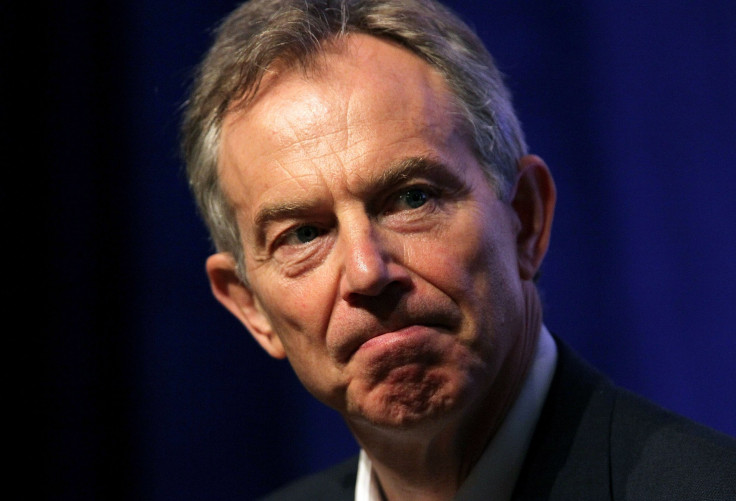Tony Blair Apologizes For Iraq War Mistakes But Does Not Regret Toppling Saddam Hussein

Former British prime minister Tony Blair has apologized for Iraq war "mistakes" and expressed regret about failing to properly plan after toppling the Saddam Hussein regime in 2003, in an interview with CNN's Fareed Zakaria, which is due to be aired Sunday.
For the first time publicly, Blair has admitted to oversights in intelligence and planning of the war -- referring to the allegation that Saddam’s regime possessed weapons of mass destruction, a claim used by the U.S. and British governments to justify launching the invasion.
"I apologize for the fact that the intelligence we received was wrong. I also apologize for some of the mistakes in planning and, certainly, our mistake in our understanding of what would happen once you removed the regime," he said.
Blair's latest remarks are in stark contrast to his statement in 2004, when he told British MPs: “I will not apologize for the conflict. I believe it was right.” In 2007, he reiterated this sentiment, saying: “I don’t think we should be apologizing at all for what we are doing in Iraq.”
But a spokeswoman for Blair said that “Tony Blair has always apologized for the intelligence being wrong and for mistakes in planning," the Guardian reported Sunday.
The 62-year-old, however, stopped short of a full apology, saying he does not regret bringing down the former Iraqi leader.
When asked if the invasion helped feed the rise of the Islamic State group, also known as ISIS, Blair agreed that there are “elements of truth” in the theory. “Of course you can’t say those of us who removed Saddam in 2003 bear no responsibility for the situation in 2015,” he added.
More broadly, Blair said, the policy debate on Western intervention remains inconclusive.
Claims of spin
The comments are thought to be the first time Blair has sought forgiveness over the war, according to reports, and sparked claims of “spin” as it comes ahead of the much-delayed Chilcot inquiry findings. The Chilcot inquiry, announced in 2009 to look into the U.K.’s role in the Iraq war, is expected to release its final conclusions in early 2016. Relatives of soldiers killed in the war have threatened legal action if a date is not fixed soon, according to reports.
Blair and other senior Labor politicians involved in the conflict are understood to have been given notice of the verdict on them in the Chilcot report, the Telegraph reported.
As the closest foreign ally of former U.S. president George W. Bush in the Iraq war, Blair’s legacy has come under heavy criticism.
In his CNN interview, when asked how he felt about being called a “war criminal” by political opponents, he said that though he had won an election after the Iraq invasion, it has been a "huge political problem."
Blair's interview with Zakaria comes ahead of a special program, "Long Road to Hell: America in Iraq,"
© Copyright IBTimes 2025. All rights reserved.





















